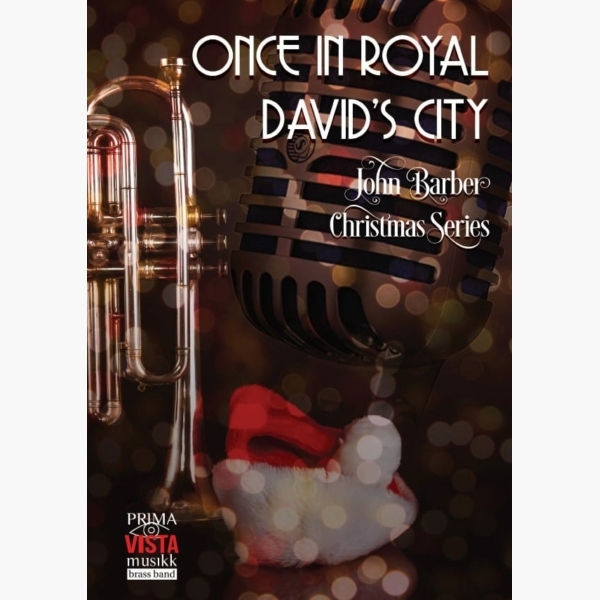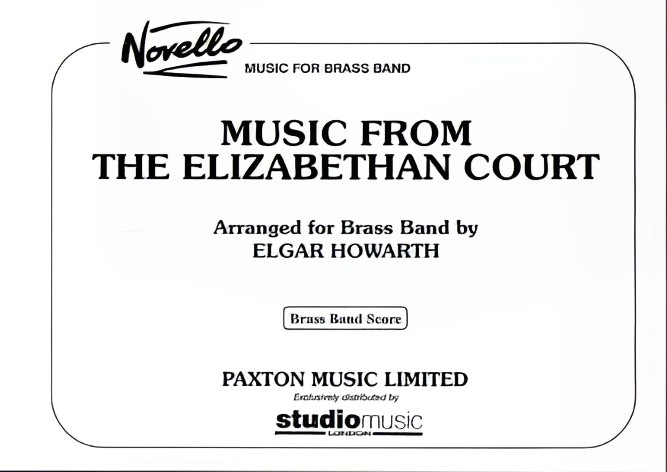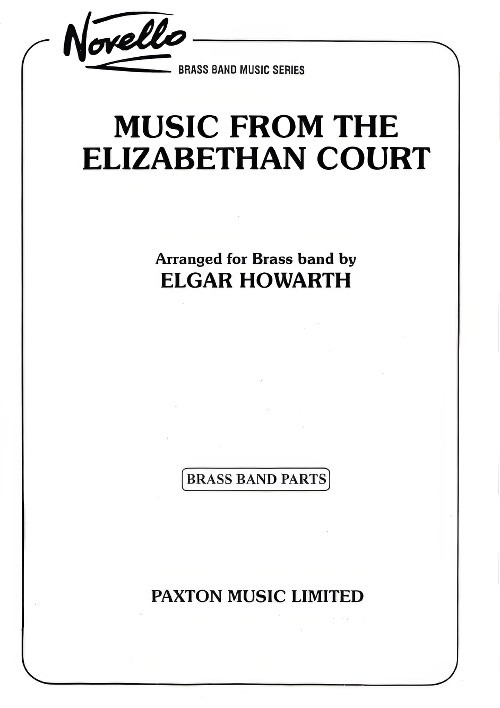Results
-
 £29.95
£29.95John O'Gaunt (Overture) (Brass Band - Score only) - Vinter, Gilbert
Concert Overture for Brass BandIn the year 1340 in the town of Ghent, a son was born to Edward III King of England and his Queen Phillipa. The boy, afterwards known as John O'Gaunt (Ghent) grew up to be a warrior and before he was 20 he was fighting in France beside his brother, the Black Prince. For many years he was occupied with the wars in France and Spain and was seldom in England. His first two marriages brought him great riches and position, but the love of his life was Catherine Swynford, who bore him four children. Whilst he was away , his Palace of Savoy was burnt to the ground by the mob during the Peasant's Revolt. Finally in 1394 he returned home and married Catherine, for whom he felt a strong affection since her first marriage in St. Clement Danes Church in the Strand, many years before. The Beaufort children were thus legitimised and from them sprang a long line of English Kings and Queens.Duration: 9:30Recorded on Polyphonic QPRL068D Triumphant Rhapsody
Estimated dispatch 7-14 working days
-
£29.95
EXETER TEMPLE (Brass Band Set) - Leslie Condon
This march was written for the centenary of Exeter Tempe Corps in 1981 and first played in Exeter Cathedral during those celebrations. While the march is intentionally retrospective, the unashamed absence of modernity receives some splashes of colour from the styles of march 'kings' like Bramwell Coles, Arthur Gullidge, Albert Jakeway and George Marshall.
Estimated dispatch 7-14 working days
-
£29.95
Exeter Temple (Brass Band - Score and Parts) - Condon, Leslie
This march was written for the centenary of Exeter Tempe Corps in 1981 and first played in Exeter Cathedral during those celebrations. While the march is intentionally retrospective, the unashamed absence of modernity receives some splashes of colour from the styles of march 'kings' like Bramwell Coles, Arthur Gullidge, Albert Jakeway and George Marshall.
Estimated dispatch 7-14 working days
-
£14.95
Exeter Temple (Brass Band - Score only) - Condon, Leslie
This march was written for the centenary of Exeter Tempe Corps in 1981 and first played in Exeter Cathedral during those celebrations. While the march is intentionally retrospective, the unashamed absence of modernity receives some splashes of colour from the styles of march 'kings' like Bramwell Coles, Arthur Gullidge, Albert Jakeway and George Marshall.
Estimated dispatch 7-14 working days
-
 £54.99
£54.99Soldiers Song - Patrick Millstone
As long as we can remember, trumpets and percussion have been the instruments most closely associated with the army and its soldiers. Just think of the medieval herald who publicly proclaimed all the king's important announcements. This work opens with a festive fanfare which immediately calls for your attention. No tidings of disaster, but a festive parade of soldiers passing by while whistling merrily. This idea was the composer's starting point when writing this cheerful little piece.
Estimated dispatch 5-14 working days
-
 £24.95
£24.95Once in Royal David's City - John Henry Gauntlett - John Barber
Originally written as a poem by Cecil Frances Alexander and published as a carol in 1848, Once in Royal David's City has been part of the Festival of Nine Lessons and Carols at Kings College Chapel Cambridge since 1919. This...
Estimated dispatch 5-7 working days
-
 £57.50
£57.50GOOD VIBRATIONS (Brass Band) - Wilson, Brian - Campbell, Don
The pop song Good Vibrations, which appeared as a single in 1966, is one of the most celebrated hits of The Beach Boys. The piece, composed and produced by Brian Wilson, has been called a mini symphony. Various covers versions have been made, including a marvellous a cappella version by the King's Singers. This arrangement for brass band, written by Don Campbell, is just as delightful as the original. Duration: 3:40.
Estimated dispatch 7-14 working days
-
 £29.99
£29.99Die Fledermaus Overture Johann Strauss II arr. Joseph Knight
The Strauss family were known as the "Waltz Kings" and they had a tremendous success during the latter half of the nineteenth centaury. Johann Strauss II composed this full opera in 1874, the translation of the title literally means "The Bat". This overture has become a firm favourite with audiences world wide and has been particularly at the famous Vienna New Years Day concert. This is offered as a full score and parts.
Estimated dispatch 5-9 working days
-
 £37.95
£37.95Music from the Elizabethan Court (Brass Band - Score only) - Howarth, Elgar
Contains:The Earle of Oxford's March (William Byrd)Pavane (John Bull)Galliard (John Bull)The King's Hunting Jigg (John Bull)Duration: 10.00
Estimated dispatch 7-14 working days
-
 £74.95
£74.95Music from the Elizabethan Court (Brass Band - Score and Parts) - Howarth, Elgar
Contains:The Earle of Oxford's March (William Byrd)Pavane (John Bull)Galliard (John Bull)The King's Hunting Jigg (John Bull)Duration: 10.00
Estimated dispatch 7-14 working days
